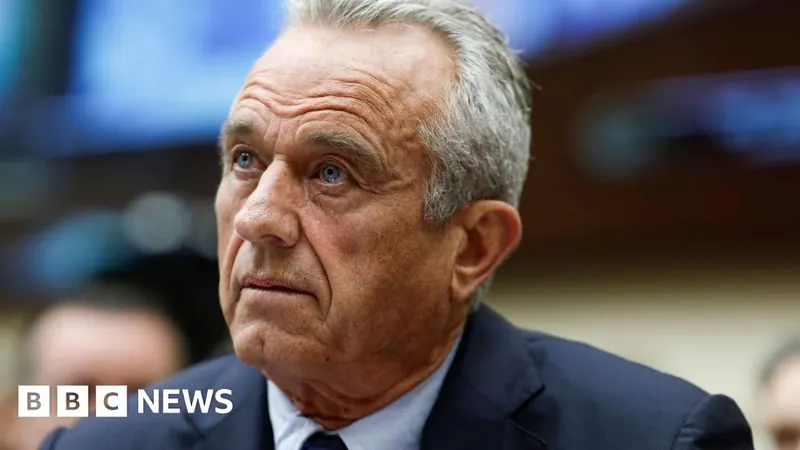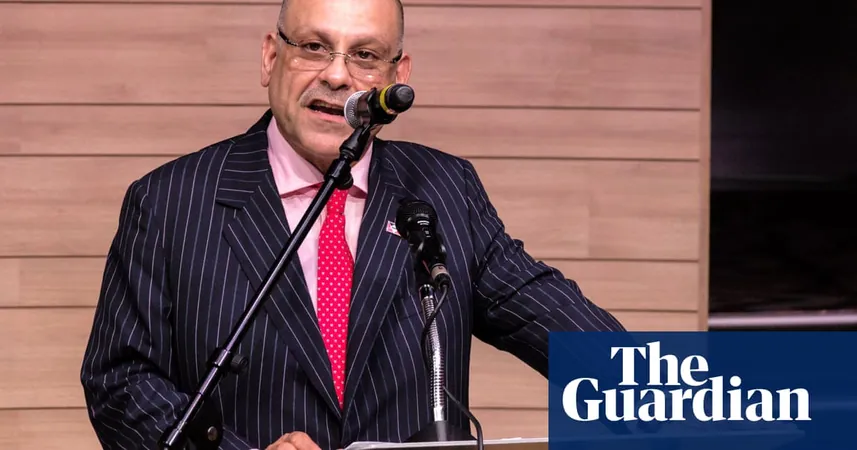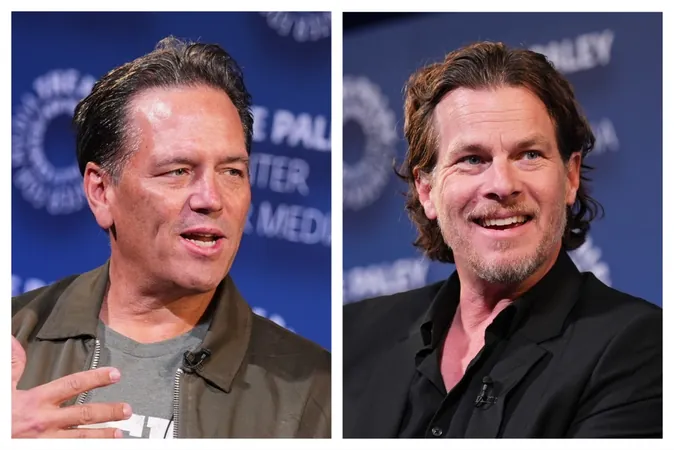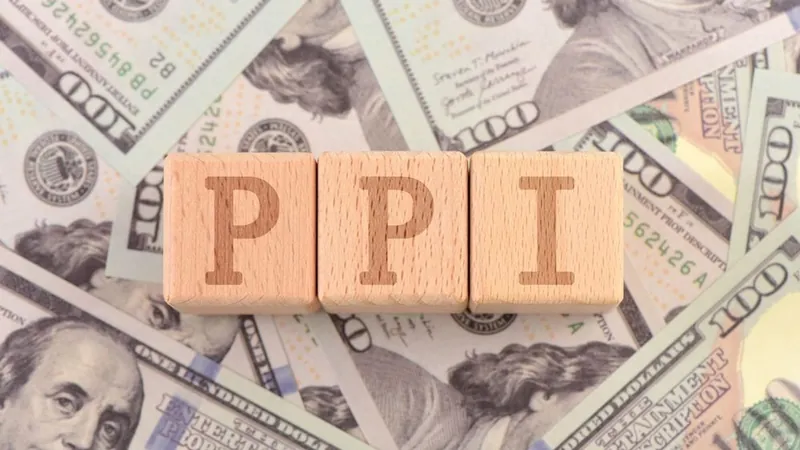
Health Stocks Plummet Following Trump's Surprise Appointment of RFK Jr as Health Secretary
2024-11-16
Author: Jacques
In a startling development that sent shockwaves through the healthcare sector, shares of pharmaceutical giants and vaccine manufacturers dropped significantly after Donald Trump announced his intention to appoint Robert F. Kennedy Jr., a well-known vaccine skeptic, as the U.S. Secretary of Health and Human Services. This decision has raised concerns among investors who fear heightened scrutiny of the industry.
On Friday, stocks took a nosedive, with Pfizer experiencing a decline of over 4% and Moderna falling around 7%. The sell-off wasn't limited to U.S. companies; UK-listed AstraZeneca and GlaxoSmithKline also saw their shares plummet by more than 3%. This wave of uncertainty has investors on edge as they try to gauge the implications of RFK Jr.'s potential confirmation.
"Shareholders are understandably spooked by this appointment. The full impact on the sector is difficult to predict, but we can expect significant unpredictability ahead," commented Russ Mould, investment director at AJ Bell.
The position of U.S. Health Secretary is critical, overseeing vast responsibilities, including food safety, medical research, and health welfare programs. Critics have raised alarms about Kennedy’s history of spreading discredited health information, positioning him as a controversial choice. Many public health officials have vehemently opposed him, attributing his rise in popularity to a growing distrust in US regulatory agencies seen as overly compliant with powerful pharmaceutical interests.
Kennedy previously mounted an unsuccessful presidential campaign as a third-party candidate, advocating for stricter regulations on food chemicals, cutting ultra-processed foods from school programs, and urging pharmaceutical companies to disclose more information regarding vaccines.
Should the Senate confirm his appointment, Kennedy's strategy represents a stark contrast to the Biden administration's approach and even diverges from Trump's earlier term, which was characterized by substantial government investments in vaccine development. Notably, Trump’s previous term also sparked concern within the industry due to initiatives aimed at reducing drug prices and facilitating easier access to medications from outside the U.S., particularly Canada.
Paul Chaplin, CEO of Bavarian Nordic, noted the mixed implications of RFK Jr.'s potential policies for his company, whose shares recently dropped over 15%. While he acknowledged the uncertainty affecting share prices, he also pointed out that Trump’s past policies had beneficially impacted their mpox and smallpox vaccine operations.
In Europe, the market reacted similarly; Danish-based Novo Nordisk, known for its diabetes medication Ozempic, saw a drop of more than 5%, while France's Sanofi, a leader in flu vaccines, experienced a setback of over 3%.
As the healthcare industry braces for the nomination's fallout, one thing is clear: investors are keeping a close watch on this unfolding situation, underscoring the critical intersection of health policy and market dynamics. With RFK Jr. set to take center stage amid a healthcare crisis, how far-reaching will the impacts be? Only time will reveal the true consequences of this controversial appointment.









 Brasil (PT)
Brasil (PT)
 Canada (EN)
Canada (EN)
 Chile (ES)
Chile (ES)
 España (ES)
España (ES)
 France (FR)
France (FR)
 Hong Kong (EN)
Hong Kong (EN)
 Italia (IT)
Italia (IT)
 日本 (JA)
日本 (JA)
 Magyarország (HU)
Magyarország (HU)
 Norge (NO)
Norge (NO)
 Polska (PL)
Polska (PL)
 Schweiz (DE)
Schweiz (DE)
 Singapore (EN)
Singapore (EN)
 Sverige (SV)
Sverige (SV)
 Suomi (FI)
Suomi (FI)
 Türkiye (TR)
Türkiye (TR)